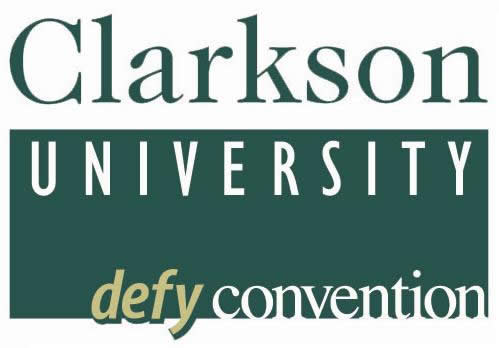
Poojitha D. Yapa
Professor of Civil and Environmental Engineering
Wallace H. Coulter School of Engineering
Clarkson University
- CE 574 Hydrodynamic Dispersion
- CE 572 Shallow Water Hydrodynamics
- CE 470 Hydraulic Engineering
- CE 330 Water Resources Engineering I
- ES 330 Fluid Mechanics (Eng)
- CE 301 Geospatial Analysis
Course Descriptions
CE 574 Hydrodynamic Dispersion R-3, C-3
Prerequisites: CE 572. Transport and spread of dissolved and particulate matter in water. Topics will include: fundamentals of diffusion, vertical mixing, transverse mixing, and longitudinal mixing in rivers, modeling (1D, 2D and 3D), Lagrangian and Eulerian methods, jets and plumes, multiport diffusers, field measurements, and non-neurtrally bouyant matter. (Spring When Needed)
CE 572 Shallow Water Hydrodynamics R-3, C-3
Prerequisites: ES 330 (Fluid Mechanics). Hydrodynamics of rivers, lakes and coastal zones. Topics include fundamentals of open channel flow, flow resistance, water surface profiles, channel controls, flood routing, unsteady flow in artificial and natural channels, two-dimensional shallow water waves, numerical solutions. (Given When Needed)
CE 470 Hydraulic Engineering R-3, C-3
Prerequisites: ES 330 (Fluid Mechanics). An introduction to hydraulic engineering. Topics include flows in pressure conduits; hydraulic machinery; open channel and river hydaulics; environmental hydraulics; and sediment transport. The course includes the consideration of both theoretical and design aspects of these topics and appropriate laboratory demonstrations. (1 credit of design) (Fall)
CE 330 Water Resources Engineering I R-3, C-3
Prerequisites: ES 330 (Fluid Mechanics). An introduction to water resources engineering. Topics include flow in pressurized conduits, hydraulic machinery, open channel flow, design of wastewater flow systems, hydrological cycle, rainfall and runoff analysis. Laboratory experience included. (1 credit of design) (Fall)
ES 330 Fluid Mechanics (Eng) R-3, C-3
Prerequisites: MA 232 (Differential Equations) or MA 231 (Calculus III) and ES 220. Basic principles of fluid mechanics. Topics include statics, forces on plane and curve surfaces, kinematics of fluid motion, integral and differential representation of conservation of mass, balance of linear and angular momenta, the first Law of Thermodynamics, Bernoulli's equation, dimensional analysis, and elementary viscous flow. Frictional losses, simple pipeline analysis and steady channel flow are covered. Understanding of the physical phenomena is stressed and vector notation is used wherever suitable. (Each Semester, Summer I)
CE 301 Geospatial Analysis R-1, L-4, C-3
Prerequisites: sophomore standing. A course in engineering measurements based on Geographical Information Systems (GIS). Use of GIS software to learn civil engineering applications and design. Includes learning Global Positioning System (GPS) surveying, probability, statistics, and error analysis. (1.5 credits of design) (Each Semester)

Experimenting, Developping Models and Sharing Knowledge on Deep Water Oil Related Problems for more than 20 Years

Clarkson University has a worldwide reputation for its leading oil and gas computational research More >>
Contact
- E-mail:
- pdy at clarkson dot edu
- Telephone:
- 315-268-7980
- Fax:
- 315-268-7985
- Address:
- Clarkson University
Box 5710,
130 Rowley Laboratories, Potsdam,
NY 13699-5710 U.S.A.